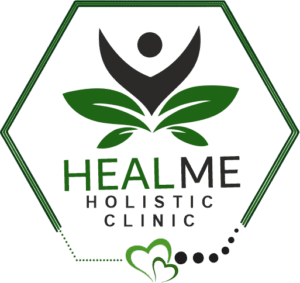Sinusitis

A condition in which the cavities around the nasal passages become inflamed.
Acute sinusitis can be triggered by a cold or allergies and may resolve on its own. Chronic sinusitis lasts up to eight weeks and may be caused by an infection or growths.
Symptoms include headache, facial pain, runny nose and nasal congestion.
The different types of sinuses near the nose and eyes
-
The ethmoidal sinuses are located between your eyes.
-
The maxillary sinuses are located below your eyes.
-
The sphenoidal sinuses are located behind your eyes.
-
The frontal sinuses are located above your eyes.
The biggest sinus cavity is the maxillary cavity, and it is one of the cavities that most often becomes infected.
There are different types of sinusitis:
-
Acute bacterial sinusitis: This term refers to a sudden onset of cold symptoms such as runny nose, stuffy nose, and facial pain that does not go away after 10 days, or symptoms that seem to improve but then return and are worse than the initial symptoms (termed “double sickening”). It responds well to antibiotics and decongestants.
-
Chronic sinusitis: This term refers to a condition defined by nasal congestion, drainage, facial pain/pressure, and decreased sense of smell for at least 12 weeks.
-
Subacute sinusitis: This term is used when the symptoms last four to twelve weeks.
-
Recurrent acute sinusitis: This term is used when the symptoms come back four or more times in one year and last less than two weeks each time.
.
It is caused by a virus, bacteria, or fungus that swells and blocks the sinuses. Other causes include:
- The common cold.
- Nasal and seasonal allergies, including allergies to mold.
- Polyps (growths).
- A deviated septum. The septum is the line of cartilage that divides your nose. A deviated septum means that it isn’t straight, so that it is closer to the nasal passage on one side of your nose, causing a blockage.
- A weak immune system from illness or medications.
For infants and young children, spending time in day cares, using pacifiers or drinking bottles while lying down could increase the chances of getting sinusitis.
For adults, smoking increases the risks for sinus infections.
Signs and symptoms of sinusitis
- Difficulty in breathing due to blockage of one or both nostrils
- Headache — mild to intense or heaviness at the front of the head
- Radiating pain in the ears, upper jaw and teeth
- Feverish
- Swelling around eyes and cheeks
- Bad breath
- Ear blockages
- Cough
- Thick mucus discharge
1. Stay Hydrated
Dehydration affects not only the body’s essential functions but also causes the mucus to thicken. Thick mucus clogs the sinus and provides the perfect environment for bacteria to multiply and causes inflammation. Drinking the recommended amount of water is crucial for your body, as well as the nasal cavity.
2. Take Antioxidants in Plenty
Antioxidants help to fight free radicals that contribute to chronic sinusitis. Furthermore, they protect the mucus membrane. Bright colored vegetables and fruits such as berries, kiwi, pumpkin, papaya, sweet potatoes, and pineapple are all rich in antioxidants, vitamins, and minerals. Pineapple also contains enzymes that break down the buildup on the sinuses and reduces inflammation.
3. Include Peppers with Your Meals
Peppers clear the nasal congestion and soften the mucus for smooth flow. The hot chill contains capsaicin, which can ease pain, stimulate the immune system, and reduce inflammation. Peppers cannot treat sinusitis, but they are a great way to reduce congestion. However, take the spicy food in moderation as it may lead to abdominal pain and indigestion.
4. Garlic and Ginger Can Help Too
Garlic has Sulphur compounds rich in antibacterial and antifungal properties that reduce inflammation and fight viruses too. Ginger also has anti-inflammatory and antioxidants, which speed up healing, decrease pain, and swelling. Furthermore, because it has antihistamine, ginger can help ease allergies, discomfort, and sinus pain. You can also use turmeric because it has the same benefits as ginger
Dairy and related products are common culprits for congestion and microbial growth. Avoid dairy if you have had previous episodes of sinus infections. Also, try to avoid refined sugar as it is pro-inflammatory and increases the production of mucus. Other foods to avoid include tomatoes (contain histamines), chocolate, cheese, gluten, and fruits like bananas, which can cause congestion.
Few tips to prevent congestion.
- Run water into the nasals to clean it of excess mucus
- Inhale steam in the shower or bend over a pan with hot water
- Use a humidifier to moisten your air in your home to prevent the nasals from drying out
- Elevate your head to keep the mucus from clogging your sinus
- Don’t forcefully blow your nose as it can irritate the nasals.
Nasya (sinus treatment)
Nasya plays a very important role in treating sinusitis.Nasya introduces drops of medicated oil into the nasal passages where it penetrates the mucosal lining and promotes healing of the nose and sinus region. Accompanied by a gentle sinus massage, nasya stimulates energy movement and healing in the area.Nasya also prevents recurrence of sinusitis.
Shirodhara (pouring of warm medicated oil on the forehead)
Oil pulling (swishing of warm oil around the mouth and gums)
Neti – sinus rinse with salt water (needs special instruction and advice from your ayurvedic practitioner)
Steam inhalation– Add either ginger, eucalyptus oil, clove oil or other medicated herbs (as prescribed) to boiling water in a bowl. Place face over the bowl at a comfortable distance, with a towel over the head, and gently inhale the steam for 10-15 minutes. Repeat 2-3 times/day while your condition is active, and then once/day for maintenance.
Herbal Therapy
Some ayurvedic herbs and formulae useful for managing sinusitis include:
- Haridra Khanda
- Chitraka Haritaki
- Dasamoola Kashayam
- Chyawanprash
- Vyosadi Vatakam
Why you need to consult to a doctor?
Accordion Content









